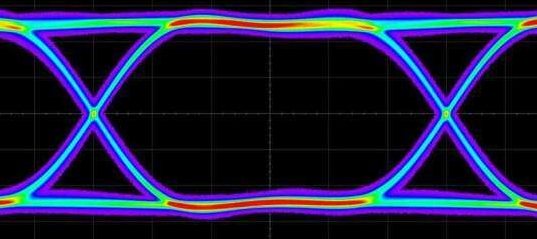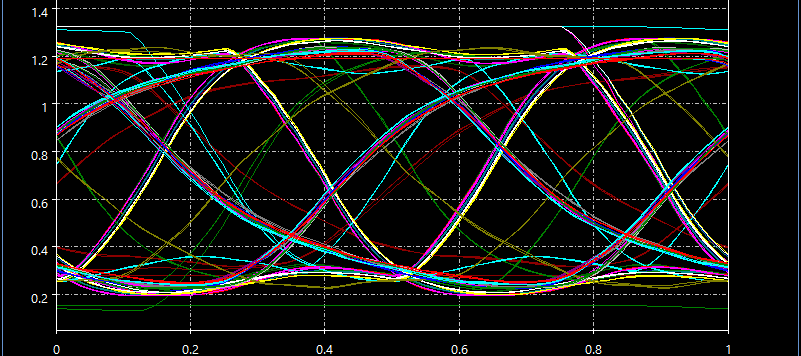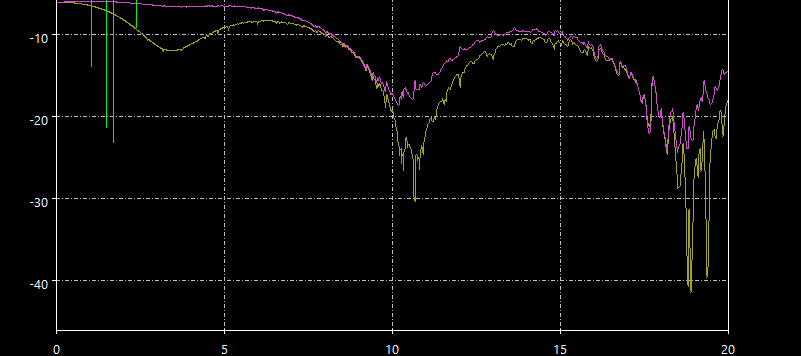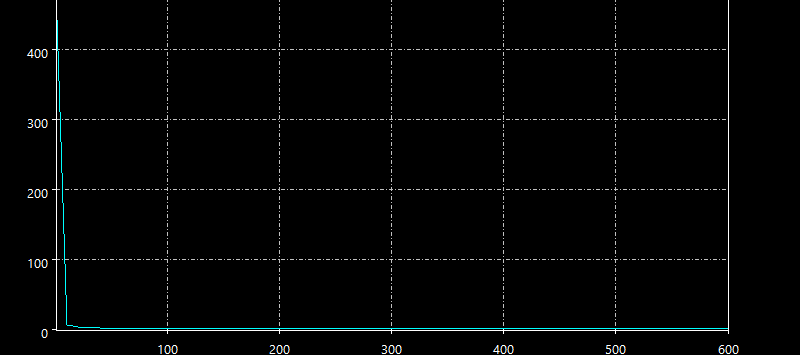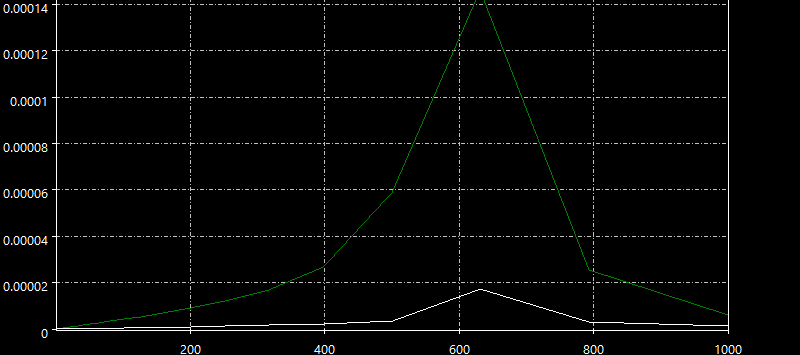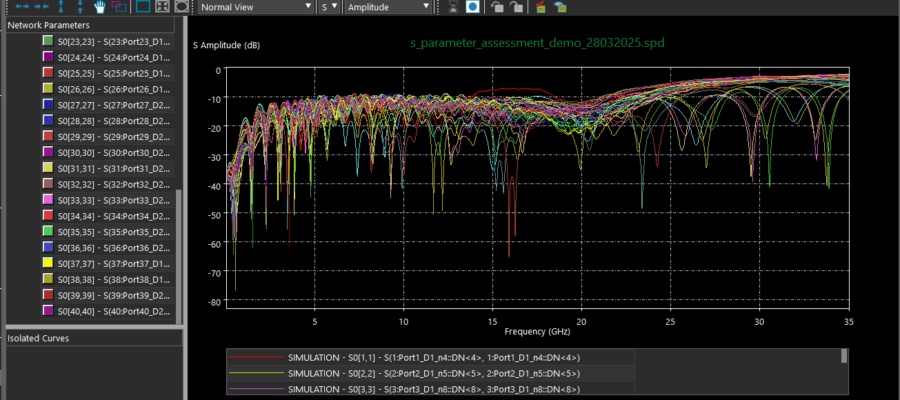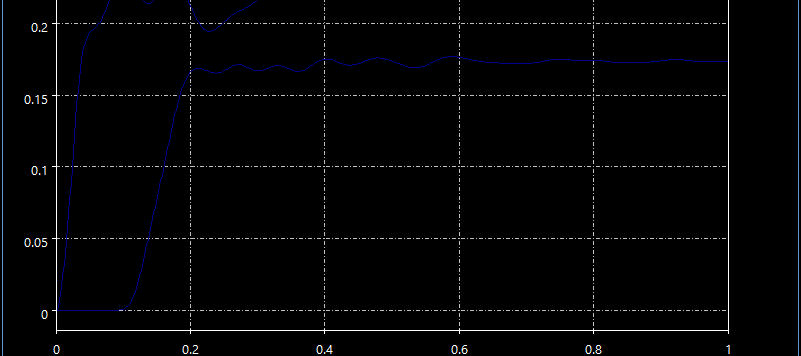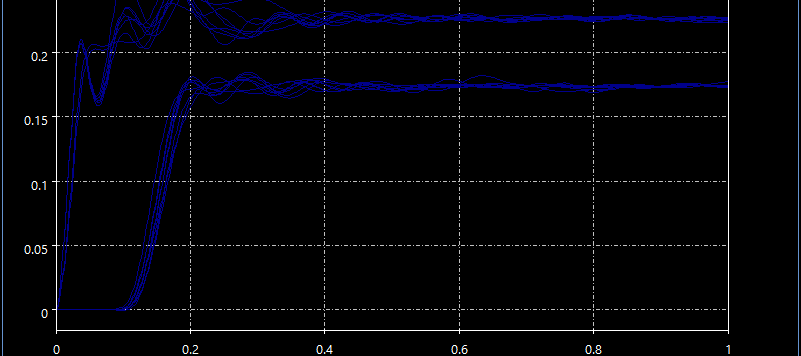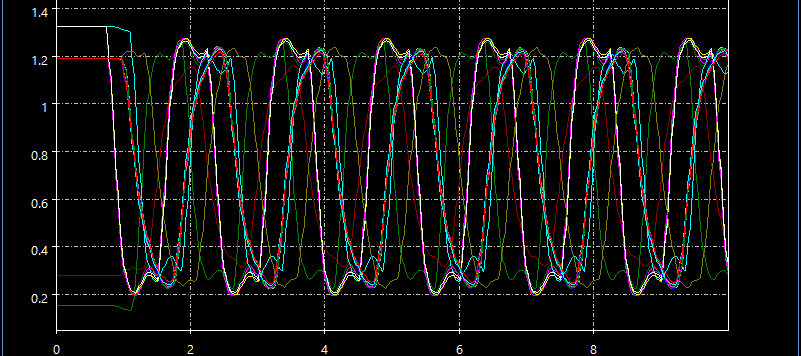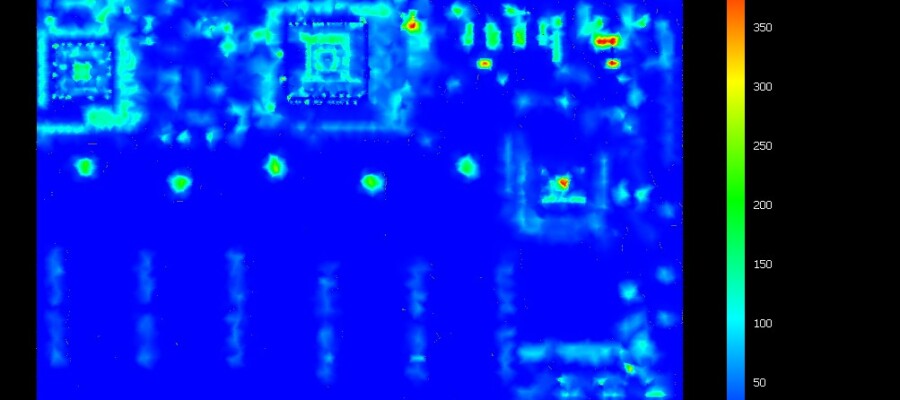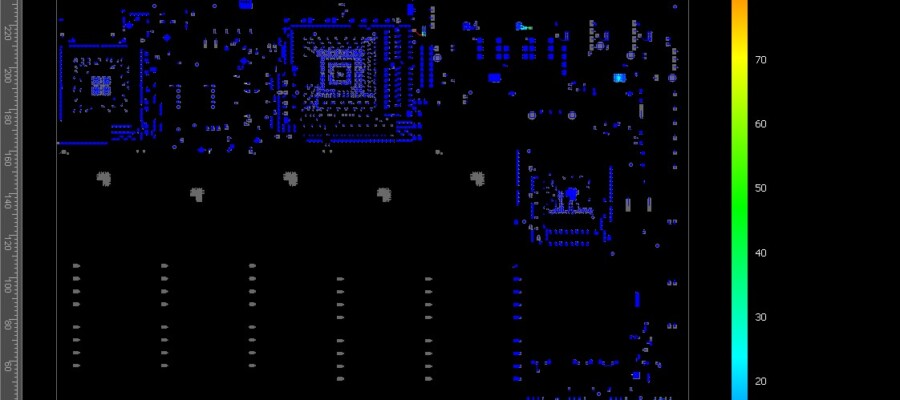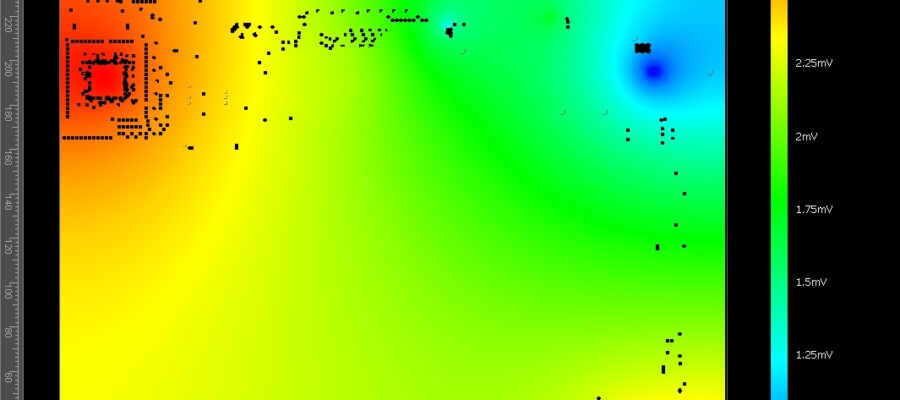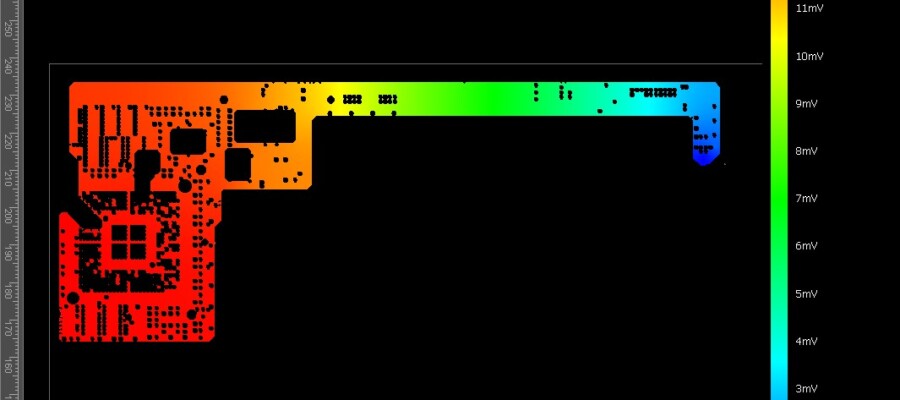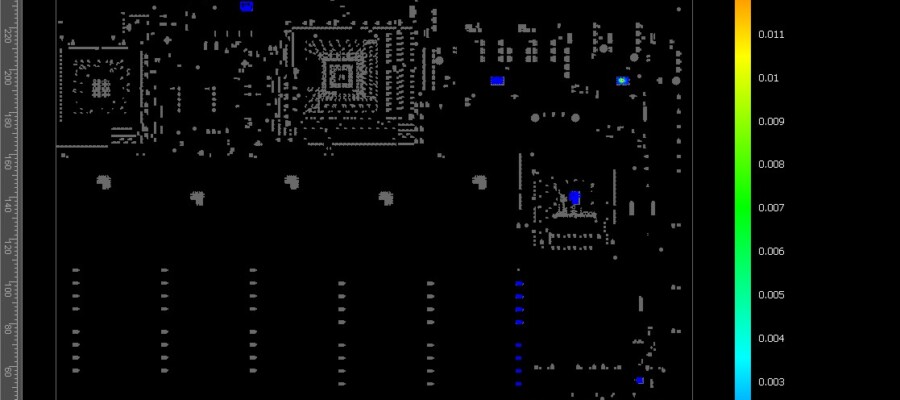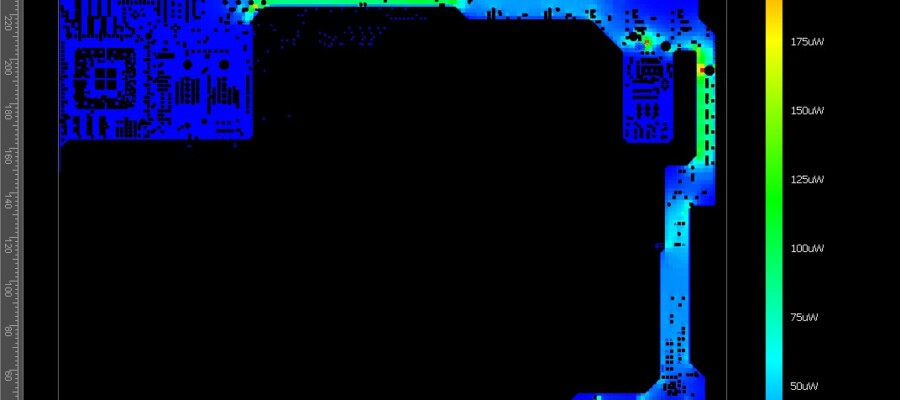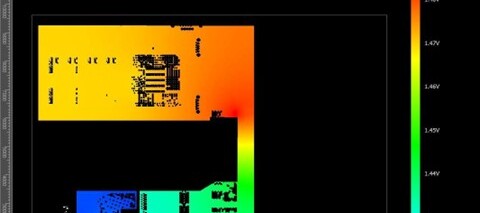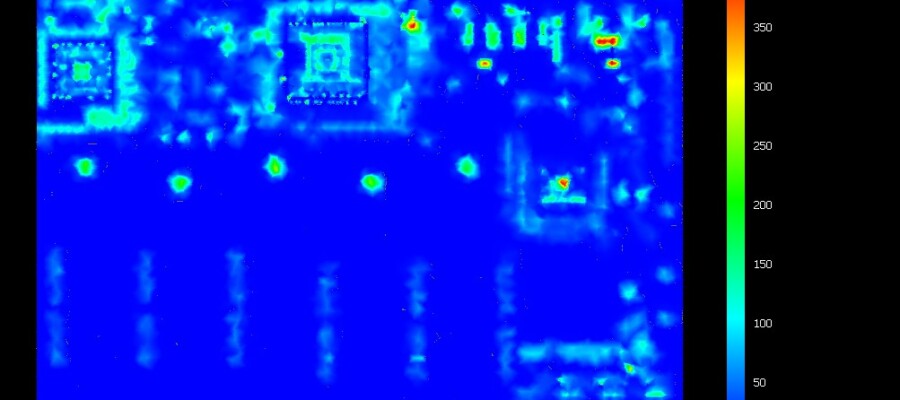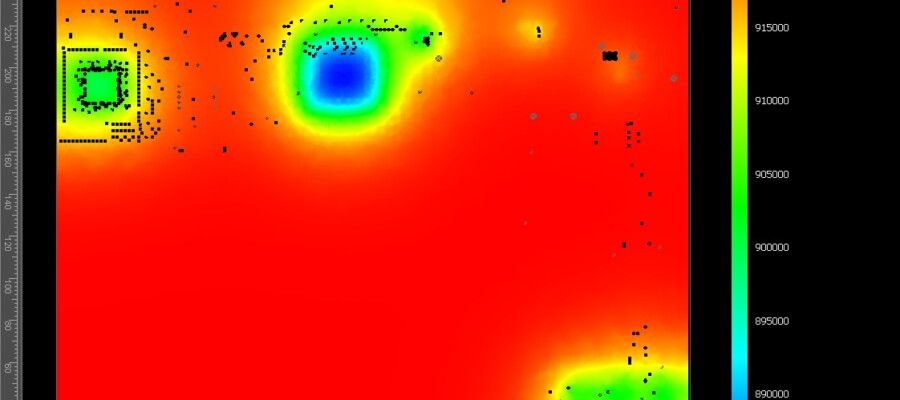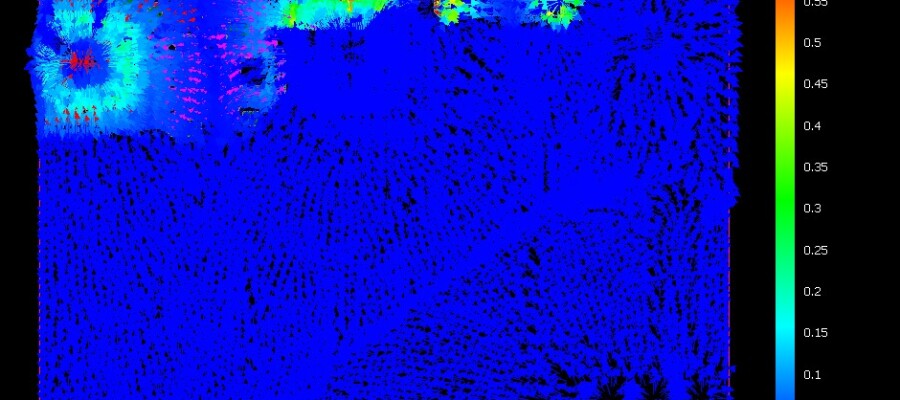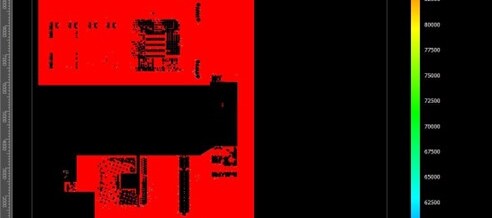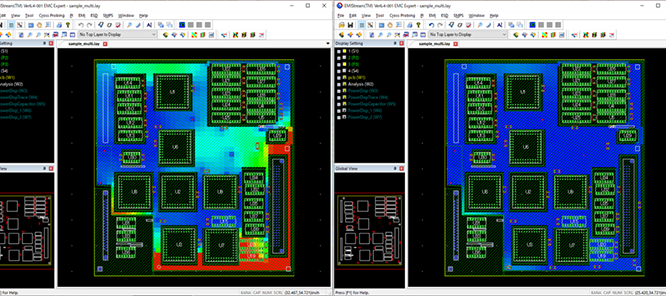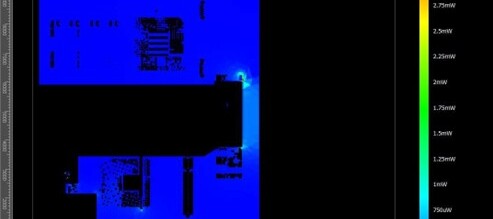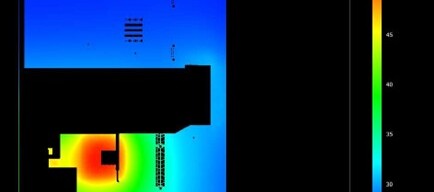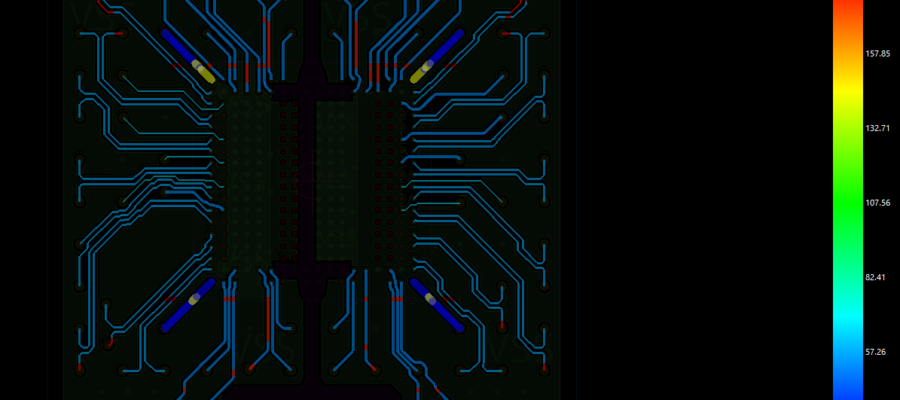Analysis
Tools used



Design analysis
At OmCAD, we perform real-time in-design analysis to catch issues early in the layout phase. This proactive approach ensures electrical, thermal, and physical constraints are met before finalizing the design
Signal Integrity
At OmCAD, Signal Integrity is a critical focus during the PCB design process, especially for high-speed and high-density layouts. Our engineers use advanced simulation tools to analyse and eliminate issues such as crosstalk, reflections, ringing, and electromagnetic interference (EMI)—ensuring that signals travel cleanly and accurately across the board.
By simulating real-world conditions and transmission behaviour, we validate signal paths before fabrication. We consider impedance control, termination techniques, layer stack-up, and trace geometry to maintain signal clarity and minimize distortion or data loss.
This rigorous SI analysis improves timing accuracy, system stability, and overall design performance—helping our clients meet the most demanding electrical and regulatory standards in industries like telecom, automotive, medical, and industrial electronics.
Analysis Types
- Noise Coupling Analysis
- EMI/EMC Radiation analysis
- Plane wave susceptibility
- Resonance analysis
- ERC
- VR Noise
- S-parameter
- Multiple Structure Simulation.
Power integrity
Robust power delivery is the backbone of any high-performance PCB. At OmCAD, we perform precise Power Integrity (PI) analysis to identify and resolve issues like IR drops, voltage fluctuations, decoupling inefficiencies, and power plane noise—factors that can compromise system stability and reliability.
Our engineers optimize the Power Delivery Network (PDN) using simulation and modelling techniques to ensure clean, efficient, and consistent power reaches every component. This includes strategic placement of decoupling capacitors, careful layer stack-up planning, and impedance-aware power routing.
By addressing potential power-related issues early in the design phase, we help clients achieve reliable performance, reduce EMI, and avoid costly redesigns—especially in power-sensitive and high-speed applications.
Thermal Analysis
Efficient thermal management is essential for maintaining the reliability and longevity of high-performance PCBs. At OmCAD, we leverage advanced thermal simulation tools to identify potential hotspots, analyse heat flow, and evaluate the effectiveness of thermal reliefs and dissipation paths.
Our engineers assess material properties, component placement, copper distribution, and via structures to optimize heat distribution across the board. Where necessary, we recommend solutions like heat sinks, thermal vias, or improved layer stack-ups to control temperature rise.
By integrating thermal considerations early in the design cycle, we ensure your PCB performs reliably even under demanding operating conditions—reducing the risk of thermal stress, component failure, and long-term degradation.
